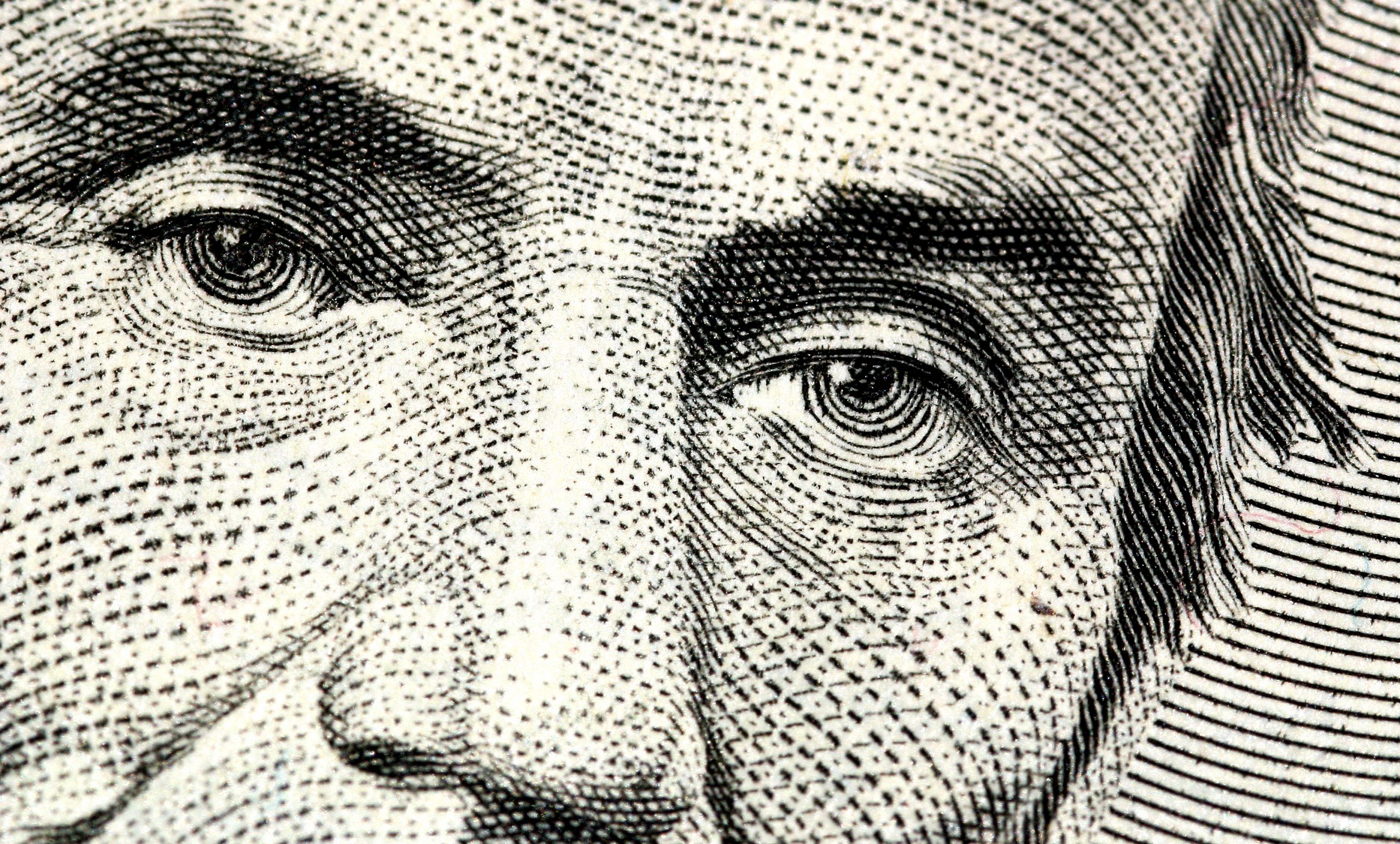The views expressed in our content reflect individual perspectives and do not represent the authoritative views of the Baha'i Faith.
Recently I’ve caught myself saying “I do not have enough money!” way too often. Have you ever said that to yourself? This kind of self-talk can seriously impact us – it certainly did for me.
In my own mind, my self-defined plight made complete sense. I have not been making “enough” money, based on my own standards. So, internally I translated that feeling of scarcity into this unrealistic sentence: I do not have money.
RELATED: Making Economics Serve Humanity
This was not only something going on in my mind. I have been repeating the same sentence during almost all of my interactions. Sometimes, I used it as a joke, saying “I’m broke” to my friends when having dinner with them. During other times, this feeling came to me more painfully: In the moments that I was alone, when I felt helpless or unsuccessful, and during all the times I felt unworthy during the pandemic.
This repetition in my mind and in my discussions with friends now happened so often that it started to become a belief. Unaware of how this seemingly simple sentence affected my mood, I kept it up, even though it altered how I viewed myself, and how I viewed wealth in my life. I kept repeating the sentence again and again, unconsciously, until one early morning when I came across this passage from an unknown writer while doing some reading:
If you have food in your fridge, clothes on your back, a roof over your head, and a place to sleep you are richer than 75% of the world. If you have money in the bank, your wallet, and some spare change you are among the top 8% of the world’s wealthy. If you woke up this morning with more health than illness you are more blessed than the million people who will not survive this week. If you have never experienced the danger of battle, the agony of imprisonment or torture, or the horrible pangs of starvation you are luckier than 500 million people alive and suffering. If you can read this message you are more fortunate than 3 billion people in the world who cannot read it at all.
Shocking, right? Who knows if these statistics are exact, but for sure they’re worth reflecting on. They made me realize how unfair I’ve been while saying “I do not have money,” when instead I clearly live a privileged life.
I doubt I’m alone in this belief about scarcity, which now feels unfair considering all that I have been given in my life. Right now, take a moment to think about how many times a day we internally say: “I am starving,” “I don’t have a choice,” “I have not accomplished anything in my life,” “I do not have any friends,” or “I feel like a failure.”
In these moments of self-doubt, we need to remind ourselves to choose our words more carefully – for our words can affect our beliefs, and our beliefs can affect the way we act. Reflecting on this quotation from Baha’u’llah, the prophet and founder of the Baha’i Faith, can help us all better navigate through this journey:
Every word is endowed with a spirit, therefore the speaker or expounder should carefully deliver his words at the appropriate time and place, for the impression which each word maketh is clearly evident and perceptible. The Great Being saith: One word may be likened unto fire, another unto light, and the influence which both exert is manifest in the world.
In the past few weeks, meditating on how I’ve been using my everyday words and how they have affected my feelings about the meaning of prosperity and wealth, I’ve recognized a few things:
1. Feeling wealthy is possible in any situation
Feeling wealthy, like feeling happy, can change as we consciously alter our perspective. Creating a routine of gratitude can forge a practical way for us to take a moment to focus on all we have been given, all the beautiful people we have gotten to know, and all that we’ve had the chance to experience.
This routine is not only an effective way of widening our perspective, but also serves as a great reminder of how lucky and wealthy we already are, and of how much we already have. It reminds us of the fact that we should not take our body, our mind, our soul, our experiences, and all our possessions, no matter how limited, for granted.
2. Your perspective can change how you act
Have you ever caught yourself saying: “I already have enough issues on my plate, I cannot help another person too?” Again, the way we view ourselves can affect the way we act. Being bombarded daily with posts on social media, and seeing people living their best lives, can sometimes make us feel a sense of scarcity.
What if, instead, we acknowledge and appreciate how much we already have? What we have might be different – time, money, talent – but the moment we act from a place of abundance and gratitude and not of scarcity, we can stop thinking about ourselves, bewailing our lack of resources, and take more selfless actions.
Personally, I’ve realized that when I feel I have nothing to give, I am broke, or I am a failure, I tend to make more selfish decisions. Focusing on how much I already have makes me realize that I can be more generous. When we feel abundant, we feel we can be more giving and more of service to others.
The moment we shift our mindset, we can realize how wealthy and noble we already are. In those moments, I think of this quote from Baha’u’llah’s mystical book The Hidden Words, which reminds me that all people have been created noble, and we always have a choice to find our way back towards the noblest versions of ourselves: “O Son of Spirit! Noble have I created thee, yet thou hast abased thyself. Rise then unto that for which thou wast created.”
When we recognize our inner spiritual nobility, we find our way out of the mindset of scarcity and into a sense of wholeness and unity.
3. Wealth can be a great tool – but is not a destination
Material wealth can be a great tool, not only to live a fruitful life but also to serve others. However, it can also move us further away from our spiritual growth when perceived as our life purpose and the only destination worth reaching. Therefore, it is important to remind ourselves daily of our purpose of being, and reprioritize accordingly. Maybe we can also reflect on this question: “Am I doing what I do to uplift my community and the world I live in, or only to feed my material desires and my ego?”
Abdu’l-Baha, the son and successor of Baha’u’llah, said: “It is indeed a good and praiseworthy thing to progress materially, but in so doing, let us not neglect the more important spiritual progress, and close our eyes to the Divine light shining in our midst.”
4. Real wealth comes from within
Being surrounded by materialism, which measures our self-worth based on the amount of money we gain, what we wear, where we travel, and our outward success can make us forget about the importance of spiritual wealth.
With all that surrounds us, sometimes it becomes more difficult to be reminded of how un-wealthy we might be spiritually. The Baha’i teachings say:
… this earth’s happiness does not depend upon wealth. You will find many of the wealthy exposed to dangers and troubled by difficulties, and in their last moments upon the bed of death there remains the regret that they must be separated from that to which their hearts are so attached.
Thinking about all this, I’ve learned that it’s important for me to set daily reflection moments for myself, as well as surrounding my life with environments that remind me what true and long-lasting wealth actually means. In those moments of reflection, I’m reminded of this passage from Abdu’l-Baha:
The happiness and greatness, the rank and station, the pleasure and peace, of an individual have never consisted in his personal wealth, but rather in his excellent character, his high resolve, the breadth of his learning, and his ability to solve difficult problems.
Surrounding ourselves with people, media content, and environments that encourage us in our spiritual journey can help us all achieve this focus on developing inner virtues and spiritual growth. This might mean that we need to make more conscious decisions in what we listen to, what we expose our minds to, and in which conversations we participate daily. That way, we can choose our surroundings with the intention of gaining spiritual attributes and virtues – in acquiring true and lasting wealth.
You May Also Like
Comments

















Thanks so much for a great article. So easy to lose perspective and absorb cultural messages that miss the point. Looking forward to reading more of your posts.
Michelle Goering